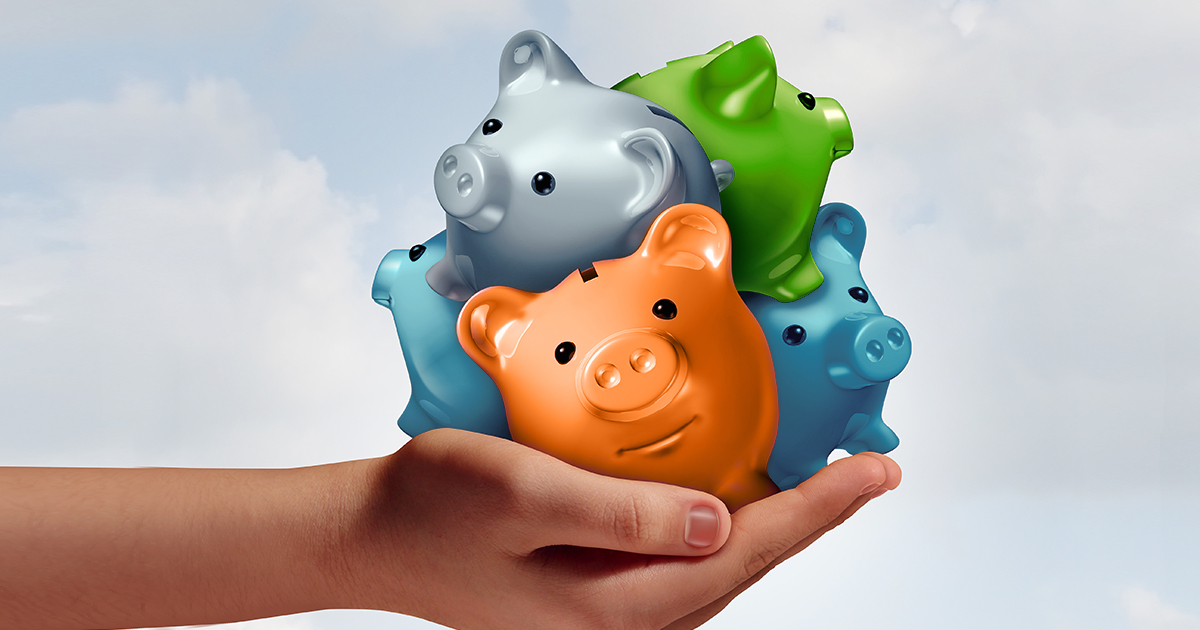When you graduated high school, you may have gotten your first credit card. Then you went to college and took out student loans to cover tuition. You also got a loan to buy a car, and then you got a great deal on a credit card from your favorite store. After you graduated, you got a credit card that would help you earn airline miles, but then an unexpected car accident left you with medical bills.
You likely started out with good intentions of making full payments each month, but over time the bills have gotten bigger and bigger. And then COVID-19 hit, and your income came to a screeching halt.
While this may not be your exact story, it’s a common one. More than 70% of Americans have at least one credit card, and 55% are carrying debt on those cards. Of U.S. households that have student loan debt, the average amount is $46,459. When times were good you were able to pay what you needed to each month, but during a pandemic (or any personal crisis like losing a job) you have a mountain of debt you don’t know what to do with.
You may have heard of debt consolidation, but what is it? And should you do it?
Debt consolidation means taking out a new loan to help you pay off multiple and different types of debts. This turns several payments with different terms, interest rates and due dates into one lump sum that may have better terms like a lower rate or smaller monthly payment. These loans may be offered by a bank or credit union, credit card company or by specific debt consolidation companies.
Like all things that sound too good to be true, debt consolidation is something you should do your research on before making a decision.
Pros to Debt Consolidation
- Simplified payments – Instead of keeping up with multiple bills and interest rates and due dates each month, you have one payment to make.
- Lower interest rate – You may be able to get a better interest rate for a debt consolidation loan than some of the other bills you have, especially the high rates on credit cards.
- Extended repayment terms – Loans are meant to be paid off over time, so you’ll likely have longer to pay it off, which could result in more manageable monthly payments.
- Better long-term credit score – Your credit score is primarily made up of paying on time and how much debt you’re using compared to what you have available. Paying off the individual debts plus reducing your overall debt percentage can actually help boost your score and keep your history clean.
Cons to Debt Consolidation
- Higher or variable interest rate – There’s no guarantee your interest rate will be lower and it may depend on your credit history, so do your research. It’s also possible the interest rate could go up after an introductory period.
- Extended repayment terms – Because you’re stretching out the payments, you’ll be in debt longer, which can lead to more interest paid overall (even if the interest rate is lower). In some cases, there may be penalties for paying the loan off early, so be sure to ask before you sign.
- Hit to your current credit score – Credit scores actually prefer a longer history of paying off debt, so consolidating to a new loan could have a negative effect in the short-term.
- Fees – Some companies charge fees for making a debt consolidation loan in addition to interest, so be aware and factor those into your total cost.
Something else to note is the new options available as part of COVID-19 relief efforts. Many credit card companies and other lenders are willing to work with you to make payments more manageable, so consider taking these five steps first to see if you can work with your creditors.
Whether you choose to consolidate your debt or not, the most helpful thing you can do is to make permanent changes to your spending habits. “Buy now, pay later” may be enticing, but it can lead to real trouble when it gets out of control or unexpected events hit. Take this opportunity to budget your expenses to not exceed your income, build an emergency fund and save up for the purchases you really want.






 Federally Insured by NCUA |
Federally Insured by NCUA |  Equal Housing Opportunity |
Equal Housing Opportunity |